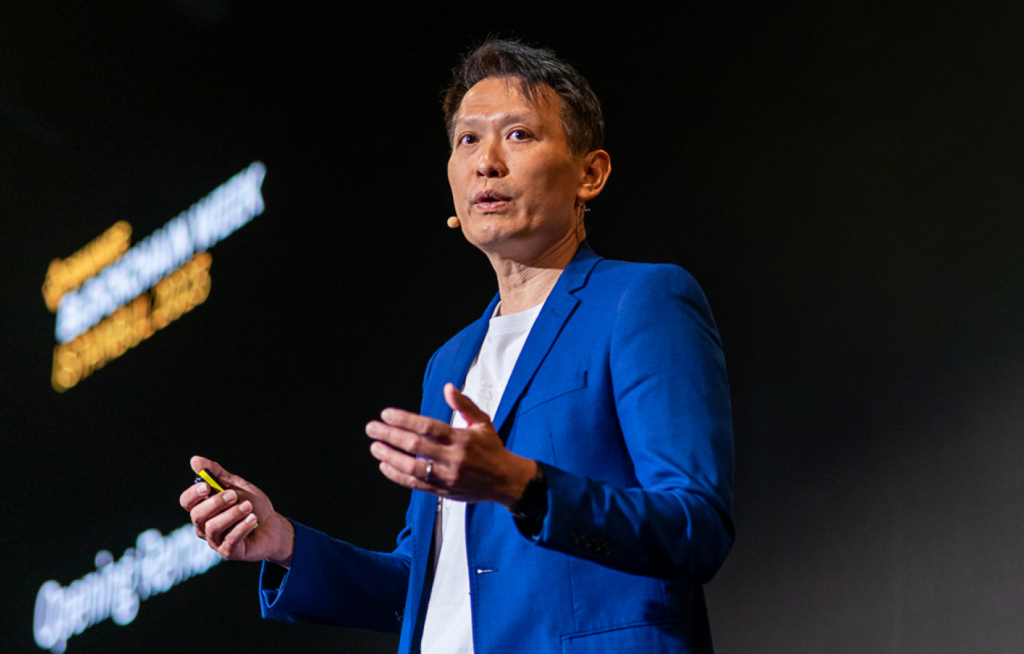Binance CEO Richard Teng strongly refutes Nigerian government allegations in a lawsuit involving money laundering and tax evasion.

Binance CEO Richard Teng has responded forcefully to the Nigerian government’s allegations concerning the company’s operations in the country.
Binance and two of its executives, Nadeem Arjarwalla and Tigran Gambaryan, are currently facing allegations of tax evasion and money laundering in the ongoing legal battle. The defense’s requests have resulted in the case being moved up to September 2, from its original date of October 11.
Binance CEO Richard Teng Criticizes the Nigerian Government’s Misreporting
In 2023, the Nigerian government asserts that Binance generated $26 billion in revenue from its operations within the country. Nevertheless, Teng categorically refuted this allegation prior to the September 2 hearing in the Binance vs. Nigeria lawsuit.
He clarified that the figure cited by the Nigerian authorities is inaccurate. “In 2023, the government has reported that we generated $26 billion in revenue from Nigeria.” Teng clarified in an official statement that this is not the case.
He clarified that the exchange’s transaction volume in Nigeria for 2023 was $21.6 billion, which is significantly lower than the purported revenue generated in the region. Therefore, the revenue that is actually generated must be significantly lower.
The CEO of Binance further elaborated, “We are proud to offer our users some of the lowest fees of any exchange globally, and our actual revenue is based on charging a small percentage of transaction fees.”
Teng Refutes Allegations Concerning the Devaluation of the Naira
The lawsuit against the cryptocurrency exchange also includes allegations that the company’s operations contributed to the depreciation of the Nigerian naira.
Teng denied these assertions, attributing the naira’s decline to broader macroeconomic factors rather than Binance’s operations. “The Nigerian government also made a claim that Binance was responsible for the decline of its currency, but this claim is not supported by any facts,” the CEO of Binance stated.
Teng provided a comprehensive analysis of the Naira’s exchange rate fluctuations, observing that the naira traded within a relatively narrow range from 2021 to 2022.
He noted that the most substantial decline occurred subsequent to the Nigerian government’s termination of the Naira’s currency peg in June 2023, which resulted in a dramatic depreciation.
“The Naira experienced a 50% decline from the beginning of 2024, trading at a recent low of USD1:1,660 on July 31, 2024,” stated Teng. He underscored that this downward trend persisted even after the exchange discontinued its peer-to-peer (P2P) services in the country in February 2024.
Tigran Gambaryan’s Health is Deteriorating
The detention of Tigran Gambaryan is a significant component of the controversy. Since February, he has been detained in Nigeria, where he serves as Binance’s Head of Financial Crime Compliance.
Binance CEO Teng expressed profound apprehension regarding Gambaryan’s declining health and the Nigerian government’s refusal to grant him access to legal counsel or provide him with sufficient medical care.
“Tigran’s mental and physical health have declined at an alarming rate, and his circumstances are now more precarious than they have ever been.” Teng disclosed that his condition is exacerbated by a herniated disc, rendering him incapable of walking.
The Nigerian government’s purported failure to comply with court orders requiring the release of Gambaryan’s medical documents and the denial of access to his U.S. consulate representative was also condemned by the CEO.
Teng described these actions as “inexplicable” and urged Gambaryan’s release on humanitarian grounds. “I urge the Nigerian government to permit him to return home to his family on humanitarian grounds in order to pursue the necessary medical treatment in the United States,” Teng reiterated.
The CEO of Binance urged the U.S. government to intervene and designate Gambaryan as one of its “unlawfully detained” citizens overseas in his statement. Additionally, he encouraged the international community to express their apprehensions regarding the Nigerian government’s conduct.
“People globally should add their voices and concerns, convincing the Nigerian government such unilateral action without a strong basis will be detrimental to the long-term economic development and well-being of the country,” he said.
